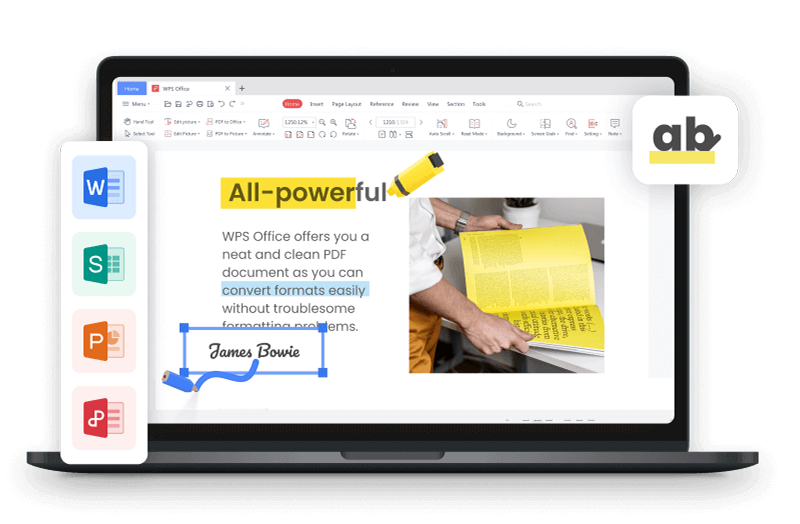Nothing shifts your momentum quite like your HP laptop keyboard locked mid-task. I was in the middle of drafting a client proposal when mine just stopped responding with no warning or error whatsoever. It clearly wasn’t a battery or connection issue, and plugging in an external keyboard only
confirmed something was wrong internally. In this guide, I’ll show you the exact steps I took to fix it: fast, effectively, and without needing a trip to tech support.
Use Keyboard Shortcuts to Unlock
Sometimes the simplest fixes are the ones I tend to overlook. When my HP laptop keyboard locked up, it turned out to be a quick keyboard command I must have triggered without realizing. Before jumping into driver updates or system settings, I decided to try a couple of built-in shortcuts and to my surprise, they worked. These steps only take a few seconds and, in my case, were all I needed to get my keyboard working again.
Step 1: Hold down the right Shift key for 8 seconds. This toggles a keyboard lock setting on some HP models, listen for a beep or check if keys start responding.
Step 2: Press Ctrl + Alt + Del at the same time. This forces Windows to snap out of any freeze and may restore keyboard function instantly.
Step 3: Test your keyboard in Notepad or your browser. If it types normally, you're good to go. If not, it’s time to move on to the next method.
When I faced the issue, I assumed it was a serious problem. I tried a few things, but nothing changed until I held down the right Shift key. It's a quick fix worth attempting before getting into more complex solutions. For anyone looking for a fast and easy HP laptop keyboard locked fix, these shortcuts are definitely the best place to start.
Restart and Update Keyboard Drivers
When keyboard shortcuts didn’t fix the problem for me, I realized there might be more going on behind the scenes. If you’re dealing with an ‘HP laptop keyboard not working’ situation, outdated or glitchy drivers are often to blame. These drivers handle the communication between your keyboard and the system, and when they’re not functioning properly, everything can just stop responding. Thankfully, updating them was easier than I expected as a few quick steps in Device Manager brought my keyboard back to life.
Step 1: Restart your HP laptop from the Start menu by selecting the Restart option under the power icon.
Step 2: Right-click the Start button and choose "Device Manager". This utility lists all the hardware components on your system.
Step 3: In Device Manager, scroll down and click the arrow next to Keyboards to expand the list of connected keyboard devices.
Step 4: Right-click your keyboard device typically labeled as "Standard PS/2 Keyboard" and select Update driver from the menu.
Step 5: In the window that appears, choose “Search automatically for drivers”. This final step lets Windows find and install the latest update, which can often restore full keyboard functionality right away.
When the shortcuts didn’t bring my keyboard back, I figured the problem had to run deeper. I opened Device Manager and gave the driver update a shot, it took just a few minutes. Updating the keyboard driver resolved my issue when shortcuts didn't work. It’s a straightforward process that ensures your hardware communicates effectively with the operating system.
Uninstall and Reinstall Keyboard Driver
If updating the driver didn’t work either, I went one step further: uninstalling the keyboard driver completely and letting Windows handle the reinstall. For anyone still wondering how to unlock HP laptop keyboard when nothing else seems to work, this method is often the most effective as for my HP laptop, this final method was what finally unlocked the keyboard. It clears out potential corruption and gives your system a fresh start.
Step 1: Right-click the Start button and open Device Manager, just like you did in the last method. This is where you’ll handle your keyboard’s driver settings.
Step 2: Expand the Keyboards section by clicking the little arrow next to it. You should see your keyboard listed, usually something like “Standard PS/2 Keyboard.”

Step 3: Right-click on that keyboard entry and select Uninstall device from the menu. A small prompt will pop up asking you to confirm.

Step 4: Click Uninstall in the prompt. This removes the driver software, but don’t worry as Windows will bring it back on its own after a reboot.

Step 5: Restart your laptop. As it powers back on, Windows will automatically reinstall the keyboard driver, and with any luck, your keys will be back to normal.
When updating the driver didn’t solve the issue, I decided to try a full uninstall. It felt like a last resort, but the process was quick and didn’t require anything complicated. After uninstalling and restarting, my keyboard functioned correctly. This method is particularly helpful if driver corruption is suspected.
WPS Office: A Smart Companion Once Your Keyboard’s Back
Once my HP laptop keyboard started working again, the real challenge was picking up where I left off. I had essay drafts open, edits pending, and the kind of scattered mess that happens when your keyboard suddenly stops mid-task. I didn’t want to lose momentum trying to reload programs or recover files. WPS Office was already on my laptop, and using it made it easier to jump back in as there were no delays or complications, just the tools I needed to get things moving again. It turned out to be a reliable workspace when I needed to quickly regain focus.

Features
WPS Office makes it easier to get back on track after dealing with a locked HP laptop keyboard. It focuses on the essentials, offering just what you need without slowing you down or overcomplicating the process.
Full compatibility with Word, Excel, and PowerPoint files: You can open, edit, and save your existing documents without worrying about layout shifts or missing features. Everything stays intact, so there’s no need to redo anything after a keyboard recovery.
Stable performance on Windows 10 and 11: After restarting my HP laptop to reinstall the keyboard driver, WPS ran without a hitch with no freezing or delay even as the system was still settling after the fix.
Light on system resources: Even after a reboot or driver reinstall, WPS doesn’t weigh down your device. It’s a great fit for older HP models or when you're trying to conserve battery during a long session.
Built-in cloud storage and file protection: Save, back up, or encrypt your work without installing extra software. Everything you need to keep your files secure and accessible is already included.
Installation Guide
Getting WPS Office set up on your HP is simple and easy. The installation process is fast, and you’ll be up and running in no time. Just follow these steps to download and install the software hassle-free.
Step 1: First, open your browser to visit WPS Office.
Step 2: On the homepage, just click the "Free Download" button to start the download.

Step 3: The download will finish in a few seconds. Once done, run the installation file like you would for any other app or software.
Step 4: WPS Office will show you a few simple terms and conditions. Accept them, then click the "Install" button to begin the installation.

Step 5: After installation, open WPS Office. You’ll see the main dashboard with options like Writer, Spreadsheet, and Presentation. These work similarly to Word, Excel, and PowerPoint.

FAQs
1. What if my keyboard still doesn't work after trying these methods?
Check for physical damage or consider reaching out to HP support. They can run a hardware diagnostic or help with deeper system issues.
2. How to tell if the Fn (Function) key is locking my keyboard?
If function keys like F1 to F12 aren’t performing as expected, the Fn key might be active. Try pressing Fn + Esc, Fn + NumLock, or Fn + Shift depending on your model to toggle it off.
3. Will connecting an external keyboard help me troubleshoot the issue?
Absolutely. A USB or Bluetooth keyboard can help you determine whether the issue is hardware or software. If the external device works, your internal keyboard may need professional repair.




